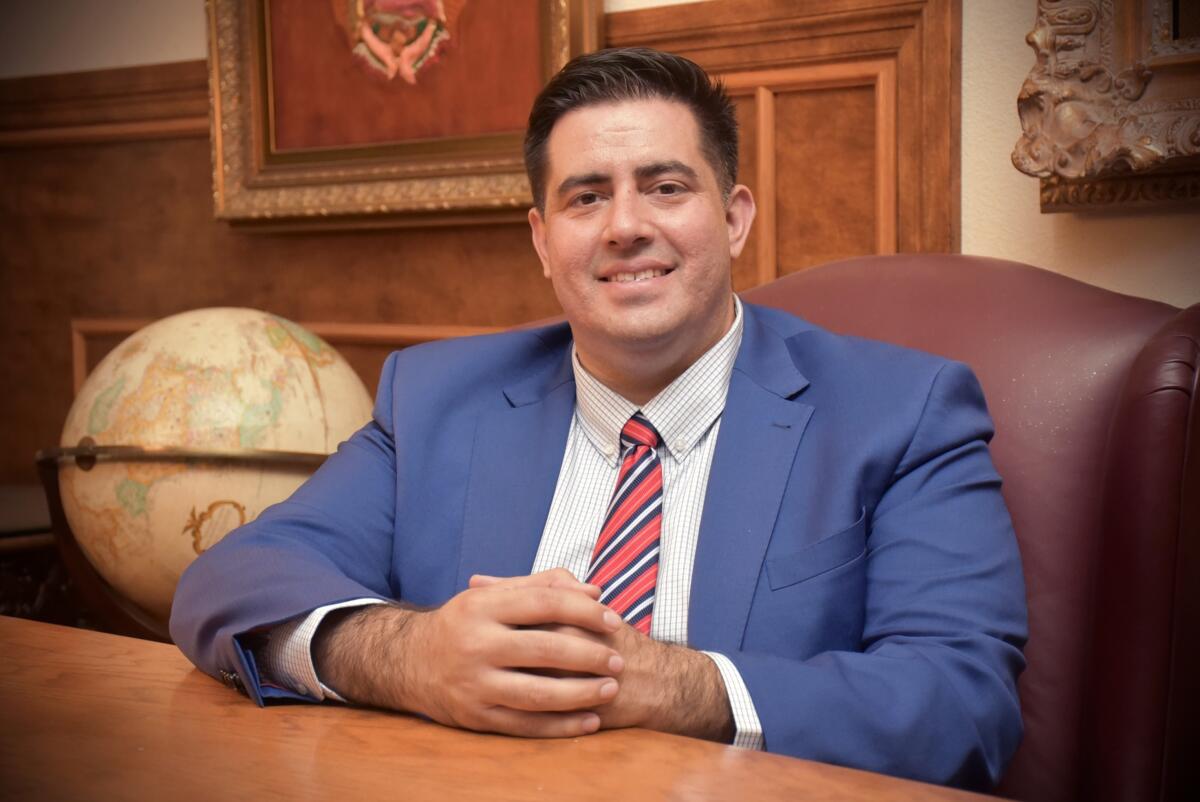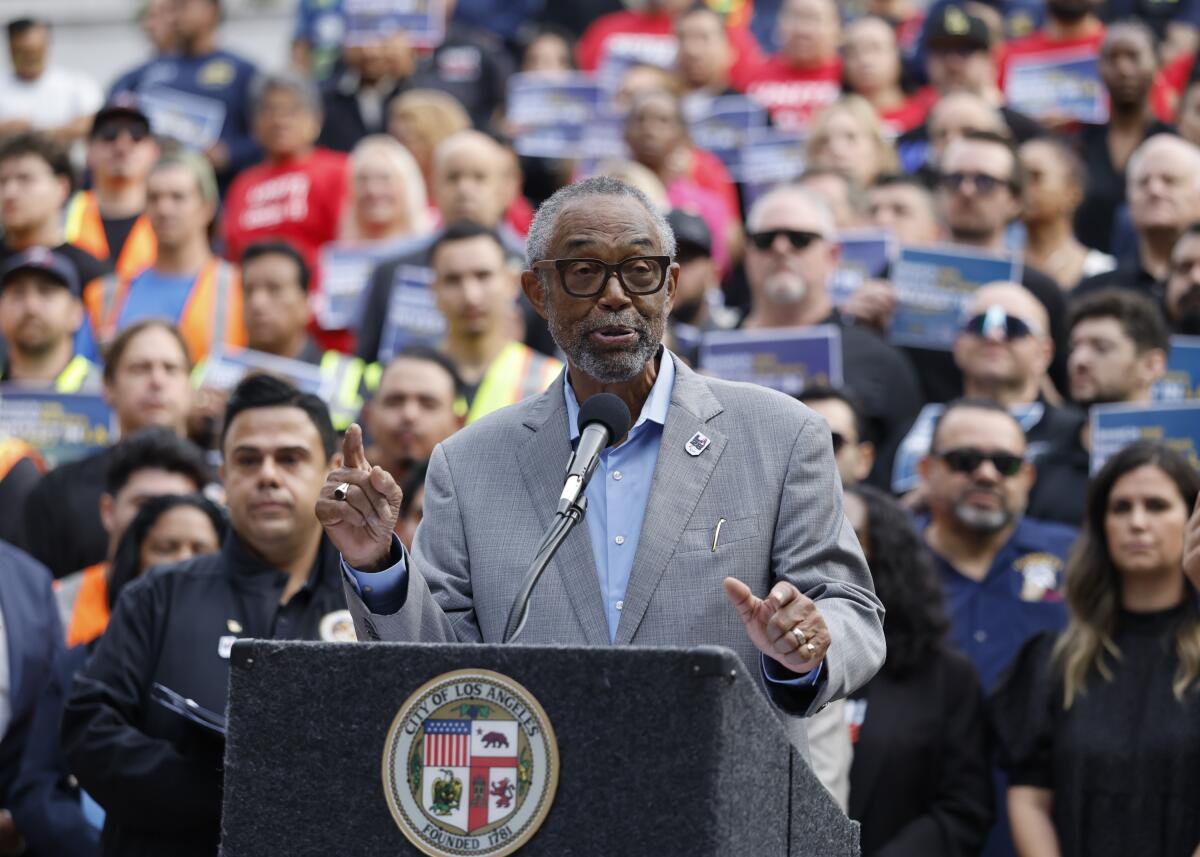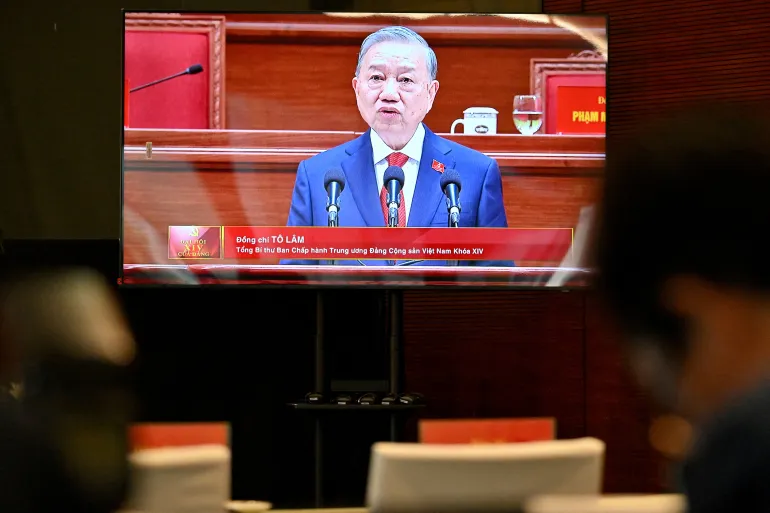
Ageless pop legends, 61 & 62, strip down to their bikinis & heels for sizzling holiday snap as fans brand them ‘perfect’
AGELESS pop legends Sinitta and Heather Small looked incredible as they stripped down to their bikinis and heels.
Both Sinitta, 62, and Heather, 61, sent their fans into meltdown with their sizzling holiday snap, as their followers rushed to brand them “perfect”.
80s pop icon Sinitta, who shot to fame with her hit So Macho, was seen with 90s star Heather.
The two women looked incredible as they showed off their toned figures.
Wearing white bikinis, they struck a fierce pose as they enjoyed some time together.
The two star friends paired their sexy look with high heels.
Both Sinitta and Heather looked exactly the same as they had during their pop heydays.
Posting the incredible snap on social media, Sinitta teased: “New Girl Group Alert!! Black Girls in White Bikinis @heathersmallmpeople.”
Fans were quick to hail the pair “perfect” and “timeless”, as they praised the duo on how incredible they looked.
SINITTA’S SPLIT
The new pic comes just a few weeks after Sinitta revealed she had split from her mystery man, who she met in Miami a few years ago.
During their time together she never revealed her boyfriend’s identity.
Taking to Instagram at the beginning of the month, Sinitta, who previously appeared on Celebs Go Dating, told fans : “There is nothing wrong with starting the year single.
“Being Alone is also a gift. time to reflect, learn and grow peacefully and in
Your own time.
“Some relationships are not meant to be forever in the same mode, they turn into friendships and some fade to pleasant memories.”
Sinitta’s love life has been a hot topic over the years.
In the late 80s she famously dated Hollywood superstar Brad Pitt.
Sinitta is also well known for very close friendship with Simon Cowell, who she briefly had a relationship with.
However, the pair are now described as “the world’s most friendly exes”, and can often be seen holidaying together.
80’S POP ICON
Sinitta shot to fame in the 1980s with hits like Right Back Where We Started and Toyboy.
It all started when she signed with Stock Aitken Waterman’s famous ‘Hit Factory’.
Following a string of Top Ten hits, Sinitta soon became a household name.
It was during this time that she became good friends with music mogul Simon.
MOVING ON UP
Meanwhile, Heather originally found fame with M People.
Throughout the 90s the band’s dance tracks, including Moving on Up and Search for the Hero, helped the them sell 10 million records.
However, Heather decided to pursue her own solo career towards the end of the decade, and in 2000 released her solo album, Proud.
The lead song, which has the same title, has received wide international acclaim for its positive message of being proud of your achievements.
Shows in the US including the Oprah Winfrey Show and The Biggest Loser have used it as their theme songs.
She has been married to David Neita since 2012, and she has a son, named James, from a previous relationship with rugby union coach Shaun Edwards.
FCC chair’s call for ‘equal time’ could have chilling effect on TV and radio
Back in 1963, Richard Nixon needed to rehabilitate his image after he lost his race for California governor. He went on the “Tonight” show with Jack Paar and played the piano.
Bill Clinton’s appearance on “The Arsenio Hall Show,” where he delivered a rendition of “Heartbreak Hotel” on the saxophone, was considered a breakthrough moment in his successful 1992 campaign for the White House.
Those memorable segments demonstrated how the desk-and-sofa format could be a tool in the politician’s arsenal for shaping public opinion away from the pesky probing of journalists. It became a way to reach viewers who did not regularly watch TV news.
But those days may become a relic of broadcast history as Federal Communications Commission Chair Brendan Carr is calling for stronger enforcement of a broadcast regulation rule requiring TV and radio broadcasters to offer equal time to all legally qualified opposing political candidates.
With the new guidance — which legal and media experts said would be hard to enforce and could stifle free speech — the FCC questioned whether late-night and daytime talk shows deserve an exemption from the equal-time rules for broadcast stations using the public airwaves.
It’s the Trump White House’s latest salvo against the network late night talk show hosts, primarily Stephen Colbert, Seth Meyers and Jimmy Kimmel, who pound away at President Trump nightly in their monologues and offer ample airtime to his political opponents. The rule also would affect daytime shows such as ABC’s “The View,” which is under the purview of the Disney-owned network’s news division.
The equal-time rule has been around for decades but rarely has been enforced in recent years. It did come into play during the 2024 presidential campaign when NBC’s “Saturday Night Live” booked Democratic candidate Kamala Harris to appear in a sketch.
NBC filed an equal-time notice with the FCC stating that Harris had appeared on the network for one minute and 30 seconds. Campaign officials for Trump contacted the network and asked for time and they were given two free 60-second messages that appeared near the end of its telecast of a NASCAR playoff race and during post-game coverage of a “Sunday Night Football” telecast.
Experts consider the rule to be antiquated, designed for a time when consumers were limited to a handful of TV channels and a dozen radio stations if they lived in a big city. The emergence of cable, podcasts and streaming audio and video platforms — none of which are subjected to FCC restrictions in terms of content — have greatly diminished traditional broadcast media’s dominance in the marketplace.
“I think it’s very hard to look at trying to regulate over-the-air broadcasters in the same way today as the FCC would have done, you know, 50 years ago,” said Jeffrey McCall, a communications professor at DePauw University. “The rule was put in place in an era of scarcity which we really don’t have anymore.”
Michael Harrison, a media consultant and publisher of the radio trade journal Talkers, said the equal-time rule will unfairly burden radio and TV broadcasters that are struggling to compete against tech companies that largely have unfettered access to consumers and are not subject to FCC rules.
“Carr’s plan would even further handicap federally licensed television and radio platforms that are already facing an existential crisis as they are being eaten alive by unregulated digital media in an increasingly noisy marketplace,” Harrison said. “Carr’s plan is just rhetoric to give the impression that the FCC still has relevance in programming regulation.”
McCall expressed doubts as to whether the equal-time law would stand up if it were challenged in the courts.
“The Supreme Court, under Chief Justice Roberts, has been pretty supportive in providing robust 1st Amendment protections,” McCall said. “I think they would say free speech is free speech. The media landscape has changed so much over the years and we don’t want the government trying to make decisions as to what counts as political speech and what doesn’t and what counts as fairness and what doesn’t.”
No network executive contacted was willing to comment on the record, but privately they say it’s an attempt by Carr to use the government’s regulation of the free public airwaves to keep the president’s critics in line. Trump has frequently called for TV licenses to be pulled when he’s unhappy with a network reporter’s question or a late-night monologue.
They also believe that Carr wants to create a wedge between the broadcast networks and their affiliate stations, which are responsible for providing equal time if a candidate makes a request. Carr has said he wants to examine the network-affiliate relationship and how much influence is exerted by Hollywood and New York on local broadcasters.
Enforcing the rule also would be a major headache for TV stations as all legally qualified candidates on minor party tickets could ask for airtime. Under the rule, if a candidate appears on a TV or radio program, their opponents have seven days to request equal time.
“It can be a headache for sure,” said one TV station executive not authorized to discuss the matter publicly.
At Trump’s behest, Carr has been aggressive in suggesting the use of FCC rules to punish late-night hosts in Trump’s crosshairs. He threatened the TV station licenses of ABC in September after Kimmel made remarks on his program about slain right-wing activist Charlie Kirk that upset conservatives. Two major TV station groups pulled the program and the network suspended Kimmel‘s program for a week.
Trump on Wednesday posted a link to a news story that said the FCC was focused on ABC daytime talk show “The View” and ABC late-night talk show “Jimmy Kimmel Live.”
Carr’s call for greater enforcement of the equal-time rule also could have an effect on conservative-leaning broadcasters. Although right-leaning hosts are largely nonexistent on broadcast network TV, they are the dominant draws on talk radio. Those hosts would also have to abide by the rule as well when they give unfettered platforms to Republican candidates.
“If the FCC pushes this on the television and not radio, they’re going to be opening themselves to all kinds of claims of trying to protect certain messages, but not others,” McCall noted.
Conservative Fox News host Sean Hannity, who does a daily radio program carried on more than 500 stations across the U.S., told The Times in a statement that he is opposed to further government regulation of broadcast content.
“Talk radio is successful because people are smart and understand we are the antidote to corrupt and abusively biased left wing legacy media,” Hannity said in a statement. “We need less government regulation and more freedom. Let the American people decide where to get their information from without any government interference.”
Interestingly, it’s the rise of Trump and his unorthodox approach to campaigning and governing that has made political commentary and humor such a dominant part of late-night TV. His emergence as a presidential candidate after being a major prime-time TV star through NBC’s reality hit “The Apprentice” pushed politics into the center of the national pop culture conversation. Sen. Bernie Sanders (I-Vermont) has been a guest on “The Late Show with Stephen Colbert” 19 times.
In a fragmented media landscape, politicians have become some of the most broadly recognizable figures on TV and have since become fixtures as late-night guests. For years, the executive producer of Stephen Colbert’s “The Late Show,” was Chris Licht, whose background was in news. He left the job to briefly run CNN.
Trump himself was a beneficiary of the late-night platform. He hosted “Saturday Night Live” twice — even in 2015 when he was already running for the Republican presidential nomination.
Prep talk: Harvey Kitani is one win away from historic milestone
History is expected to happen this weekend for Rolling Hills Prep boys’ basketball coach Harvey Kitani. The only question is whether it takes place Friday or Saturday.
Kitani has 999 career coaching victories and has two opportunities to reach 1,000 with games against Bishop Gorman on Friday at Mater Dei and Hawthorne Math & Science Magnet on Saturday at Harbor College.
Only two other coaches in California history have reached 1,000 wins — Gary McKnight at Mater Dei and Mike LeDuc at Damien, according to stats compiled by CalHiSports.com.
“You kind of are trying to comprehend that,” Kitani said. “It’s nothing I signed up for. You hear the old coaches say you’ve been coaching a long time. It’s just unbelievable being fortunate to be healthy and my support system at home has allowed me to do that stuff.”
Most of Kitani’s wins came coaching 35 years at Fairfax. He left the City Section after the 2015-16 season to coach at Rolling Hills Prep, where he has won four section titles. It’s 15 minutes from his home and two of his sons attended Rolling Hills Prep.
One tidbit from Kitani is that he spent one season — 1979-80 — coaching at San Fernando. He said he probably would never have left, but he got displaced, leaving him with no teaching job. He spent 1980-81 helping coach at Cal State Dominguez Hills and taking classes to become a special education teacher. Then he ended up at Fairfax and never left again until retiring from teaching.
Former Westchester coach Ed Azzam holds the City Section record for most coaching victories.
This is a daily look at the positive happenings in high school sports. To submit any news, please email eric.sondheimer@latimes.com.
The most popular hotels in the loveholidays sale with rooftop pools and beautiful beaches… and holidays from £149
LOVEHOLIDAYS has revealed the top picks of the most loved hotels by Brits in destinations like Malta, Costa Brava and Tenerife.
If you’re struggling to book a summer break – these are the places that are consistently raved about that are genuine gems.
One of the most loved hotels and the cheapest is the three star Mayflower Hotel in St Paul’s Bay, Malta.
It has comfy rooms with air con, minibar, TV and en-suite – it even has a rooftop pool with views across the ocean.
From the hotel, the cities of Mdina and Valletta are easily reachable by car.
Guests can dine daily on the buffet-style breakfast or head to one of the two bars for an evening tipple.
You can get seven night packages starting from £149pp which works out at £21pppn in February 2026.
Also included in the sale is the three star Pateo Village Apartments in Albufeira, Portugal.
The three star hotel is a great spot for families thanks to its big swimming pool.
There’s also plenty of activities like a games room, tennis court and evening entertainment.
Most read in Beach holidays
The hotel is right by the Albufeira old town, with lots of restaurants and bars lining the cobbled streets.
Just a short walk away is the beautiful Praia dos Pescadores Beach with golden sands and crystal-clear waters.
Seven night packages start from £159pp or £22pppn in March 2026.
Over on the Costa Brava in Spain is the four star Miramar where seven night packages start from £199pp or £28pppn in March 2026.
The hotel sits on the sandy beach in the popular resort of Lloret de Mar in front of the Trajo de Vila Avall beach.
It has a rooftop swimming pool surrounded by sun loungers, parasols and there’s a sauna too.
The hotel has a restaurant serving breakfast and dinner for guests who choose to go half board.
For any fan of the Canary Islands check out the three star Casablanca hotel in Tenerife.
The three star Casablanca hotel is located in the lively resort town of Puerto de la Cruz.
The family-friendly beach hotel has 287 studios and apartments that surround a heated outdoor swimming pool and a dedicated kids’ pool.
During peak season there’s a kids’ club, along with billiards, darts and bowling.
During the evenings, there’s lots of entertainment like live music and plenty of professional shows.
A seven night package starts from £199pp or £28pppn in May 2026.
Over in the Golden Coast of Spain, the Costa Dorada, is the three star Ohtels Belvedere.
It has lots of rooms with all the essentials, along with an outdoor pool and a kids’ pool surrounded by sun loungers.
In the hotel, there is also a gym and sauna – there’s also a playground and a kids’ club too.
When it comes to food the hotel has a buffet-style restaurant offering lots of Spanish and international dishes for breakfast, lunch and dinner.
There’s also a bar and a coffee shop serving delicious drinks and light snacks.
Seven night packages with breakfast included start from £239pp or £34pppn in September 2026.
The loveholidays sale is live until midnight on February 8, 2026 with lots of deals.
You can save up to £600 off selected holidays (based on holidays over £750).
Check out all deals in the loveholidays at www.loveholidays.com.
For more on travel deals, check out these 20 Blue Monday holiday deals you can bag with £169 all-inclusive beach resorts and £81 city breaks.
Plus, Sun Travel tested out Skyscanner’s new package holiday package tool – it’s great for some destinations.
Brits are ditching UK for beautiful country with ‘better cost of living’
With a faster internet speed, higher standards of living, vibrant main cities and stunning scenery, it’s no wonder this city is attracting a younger generation
A staggering two-fifths (39%) of Gen Z and Millennials planned to live or work abroad last year – and there was one European country that was top of the list for younger expats to go.
With a score of 7.88 out of ten based on affordability, healthcare, broadband speed and other areas, Scandinavian country Denmark polled number one as the best place for expats to relocate.
Just under two hours away from the UK, Denmark has a high income economy, a significantly quicker internet speed than average and policies including the 11th hour rule which ensures every employee has a minimum of 11 hours’ rest within 24, contributing to a high standard of living for its residents.
Research by international health insurance specialists, William Russell, analysed other factors including environmental performance and LGBT+ equality to find the leading Gen Z relocation hotspot.
In addition to the practicalities of Denmark for people looking to move there, it is also jam-packed with stunning natural beauty.
This includes untouched dunes, twisted forests, traditional seaside villages, the famous white cliffs of Møn, Jaegersborg Deer Park, which has around 2,000 deer, and many other diverse, scenic landscapes on its 70 inhabited islands.
Denmark is also home to the second longest bridge in Europe – connecting to Sweden. People can also experience the buzz of its vibrant capital city, Copenhagen. Mixing modern architecture and culture with sustainable living and royal history, the city described as ‘Northern Europe’s cosiest capital’ is packed with cafes, shops and fabulous restaurants.
If Denmark doesn’t quite hit the spot, other countries in the top 10 had various areas with impressive stats for potential expats to ponder. Iceland ranked as the safest destination for young expats, with a Global Peace Index score of 1.1 and the Netherlands healthcare score index was one of the highest scores in the dataset. The top 10 relocation destinations for Gen Z Brits were predominantly European with Canada the only place further afield.
You can check out the top 10 list below…
- Denmark
- Netherlands
- Luxembourg
- Iceland
- Spain
- Austria
- Finland
- Belgium
- Norway
- Canada
Have you moved abroad because you found a better quality of life outside the UK? Email us at webtravel@reachplc.com
Japanese PM Takaichi dissolves lower house, calls Feb. 8 snap election

Japanese Prime Minister Sanae Takaichi (C) listens to lawmakers before the announcement of the dissolution of the lower house of the parliament, in Tokyo on Friday. Photo by Franck Robichon/EPA
Jan. 23 (UPI) — Japanese Prime Minister Sanae Takaichi formally dissolved the House of Representatives on Friday, triggering a snap general election scheduled for Feb. 8 in a move aimed at securing a public mandate for her administration’s policy agenda just months after she took office.
The dissolution of the lower house came at the opening of the regular Diet session, a step not seen at the start of a session in roughly 60 years, according to news agency Kyodo.
In an official statement released by the Cabinet Secretariat, Takaichi argued that major policy shifts — including her administration’s economic measures to counter persistent inflation, structural fiscal reforms and national security initiatives — require direct public endorsement.
“Now that we have implemented immediate measures, we need to step up our efforts to realize a major policy shift,” Takaichi said in the statement. “If we do not begin implementing bold policies and reforms now, it will be too late.”
Following the Cabinet decision, the House speaker read the imperial dissolution proclamation at a plenary session, formally disbanding the 465-seat lower chamber. Official campaigning is expected to begin Jan. 27, setting one of the shortest election timetables in postwar Japanese history.
Takaichi is Japan’s first female prime minister. She took office late last year after winning a leadership contest within the ruling Liberal Democratic Party following the resignation of former Prime Minister Fumio Kishida, whose public approval had fallen sharply.
Since assuming office, Takaichi has sought to consolidate her authority within the party and its governing coalition, projecting a more assertive leadership style while pushing to advance her economic and security agenda.
The hardline conservative leader has maintained high approval ratings of around 70% amid a rightward shift in Japan, although the LDP’s support lags significantly below that of her personal numbers.
Opposition parties criticized the timing of the dissolution, accusing Takaichi of placing political strategy ahead of parliamentary deliberations on the fiscal 2026 budget. They argue the accelerated schedule leaves voters little time to assess competing policy proposals.
The ruling coalition, comprising Takaichi’s Liberal Democratic Party and the Japan Innovation Party, holds only a razor-thin majority in the lower house and remains a minority in the upper chamber, forcing it to rely on opposition cooperation to pass legislation.
Public broadcaster NHK reported that inflation and cost-of-living pressures are expected to dominate campaign debates. Political funding scandals that have dogged the LDP in recent years are also likely to feature prominently, alongside debates over foreign residents, tourism policy and Japan’s security posture amid heightened tensions with China.
The previous lower house election was held in October 2024.
Anxiety, anger, and hope in Syria’s Damascus after SDF ceasefire | Syria’s War News
Exhausted by war, Damascus longs for unity as ceasefire sparks hope. But questions of integration and stability remain.
Damascus, Syria – Damascus had breathed a sigh of relief when a ceasefire between the Syrian government and the Kurdish-led Syrian Democratic Forces (SDF) was announced on the night of January 18. Fireworks lit up the sky, car horns blared and Syrians gathered in Umayyad Square to dance in jubilation.
The hope was that the conflict that flared up in the past few weeks in northern Syria was now over, and that the country had resolved one of the major issues still dividing it in the year since the overthrow of longtime leader President Bashar al-Assad.
Recommended Stories
list of 3 itemsend of list
“It’s a beautiful feeling, and I am sure it exists in every Syrian … we wish for all of Syria to be united,” said one Damascus resident, Saria Shammiri.
Yet the celebration was short-lived.
Fighting resumed the next morning as the government’s lightning push forced SDF leader Mazloum Abdi to accept less favourable terms: a withdrawal from Raqqa and Deir Az Zor, in northeastern Syria, further east towards Hasakah, a new ceasefire, and a four-day ultimatum for the SDF to fully integrate into state structures.
Anger towards the SDF
As the clock ticks down on that deadline, in Damascus and other areas outside SDF control, frustration towards the Kurdish-led forces has hardened after 15 years of division.
“The terrorist SDF doesn’t belong to this land … they are not Kurdish. They are occupiers,” said Maamoun Ramadan, a 75-year-old Syrian Kurd living in Damascus.
For many here, the SDF is no longer seen primarily as a force that fought ISIL (ISIS) at the height of Syria’s war, but as an actor that entrenched a parallel authority backed by foreign powers, such as the United States, keeping large parts of the country beyond the central government’s reach.
In cafes, taxis and government offices, the language is increasingly blunt. The SDF is accused of delaying reunification, monopolising oil and agricultural resources in the northeast, and shielding itself behind US support while the rest of the country endured sanctions, collapse and war. The renewed fighting has reinforced a belief among many Syrians that the standoff could only ever end through force or submission. But, still, many want a peaceful resolution.
“Dialogue is the foundation of peace,” said Sheikhmos Ramzi, a butcher, “the solution lies at the negotiation table. Violence only brings more violence.”
Anxious wait
There is also an undercurrent of anxiety. While the prospect of reunifying territory is popular, few in Damascus are blind to the risks. A prolonged confrontation could draw in regional actors, unsettle fragile border areas, or reignite communal tensions in the northeast, where Arab tribal communities, Kurds, and others coexist uneasily after years of shifting alliances.
Some residents privately express concern about what integration will actually mean on the ground. Will SDF fighters be absorbed into national forces, sidelined, or prosecuted? Will local administrations be dismantled overnight? And can a central state, stretched thin after years of war and economic crisis, realistically govern and stabilise territory it has not controlled for more than a decade?
For now, however, those questions are largely drowned out by a dominant mood: impatience. The ceasefire was welcomed not as an endpoint, but as a step towards what many here see as an overdue resolution. The government’s advances are framed as restoring sovereignty, not opening a new chapter of conflict.
In Damascus, unity is the word repeated most often. But it is a unity shaped by exhaustion, resentment and the desire to finally close one of the last unresolved fronts of Syria’s long war.
Coronation Street star leaves BBC hosts gasping over ‘strange’ injury
A former Coronation Street star appeared on BBC Morning Live where they revealed an unusual injury
BBC Morning Live hosts, Holly Hamilton and Rav Wilding, were left gobsmacked over a former Coronation Street star’s unusual injury on Friday’s show.
During the latest instalment, Holly and Rav caught up with actor Nigel Havers, who played Lewis Archer on and off from 2009 until 2019. He’s also appeared in the likes of Finding Alice, The Gentlemen, Brothers & Sisters, Dangerfield, The Good Guys and Don’t Wait Up.
Nigel’s film roles also include Dr. Rawlins in the 1987 Steven Spielberg war drama Empire of the Sun and Ronny in the 1984 David Lean epic A Passage to India.
During Friday’s appearance, Nigel was on the programme to talk about his second touring show, where a synopsis reads: “Join me, a stage, and a lifetime of gloriously ridiculous stories to share with you. You’ll get the full Havers experience: charm, wit, and absolutely no running in slow motion.”
Talking about what viewers can expect, Nigel, 74, spoke about his time filming British film Chariots of Fire, which earned him a BAFTA nomination for his role as Lord Andrew Lindsay.
However, Nigel soon left hosts Holly and Rav gobsmacked when he revealed an injury he sustained from the film, which he kept hidden for years.
Nigel said: “When I did Chariots of Fire, we learnt how to be a professional athlete, really. We had a trainer for five months. I had to learn to hurdle.
“I could run at school. I was quite good at running. But I looked at hurdling and I thought, ‘No, that looks really uncomfortable.’ But I had to learn to do it because that’s the character I was playing.
“I was showing that to [co-star] Ben Cross, ten days before we started filming, how good I got. And I clipped the last hurdle. And I stuck my hand out and I dislocated my shoulder… and I broke my wrist.
“But I couldn’t tell anybody because I thought if I broke my wrist I wouldn’t be in the film. So it mended on its own, in a very sort of strange way.”
Nigel then pulled up his sleeve to show the way his broken wrist healed to which Holly gasped and a shocked Rav exclaimed: “So that’s still there to this day?” with Holly adding: “That’s because you just ignored it? Tried to let it heal by itself” to which Nigel confirmed.
The actor explained: “I’ve lost all feeling in my thumb and stuff! But no one’s ever noticed!” to which the hosts joked “until now”
BBC Morning Live continues on weekdays at 9:30am on BBC One and BBC iPlayer.
For the latest showbiz, TV, movie and streaming news, go to the new **Everything Gossip** website.
Contributor: Trump’s global chaos is sowing decades of trouble for the U.S.
Sure, President Trump’s erratic foreign policy has alienated allies, shredded the U.S.-led rules-based global order, nudged Canada closer to China and turned NATO into something resembling your uncle’s Facebook page after someone brings up politics.
Other than that? Everything’s terrific.
Just kidding. It might be even worse than we think.
The problem isn’t just that we’re losing friends, it’s that we’re creating potential enemies. And not just the kind who boo the national anthem at sporting events, but the kind who someday might decide that America is the villain in their personal origin story, right before the montage where ominous music starts playing.
If this sounds abstract or alarmist, it’s worth noting that it has already happened.
Osama bin Laden — who was once, awkwardly, sort of an informal ally against the Soviets — was radicalized largely by the Gulf War and the stationing of American troops in Saudi Arabia.
This is notable because the Gulf War — unlike the subsequent Iraq War — had international approval, a clear mission and an exit strategy. By war standards, it was practically a model U.N. bake sale. And yet it still produced consequences that reshaped America’s future, resulting in 9/11 and a couple of not-so-tidy wars.
There’s another uncomfortable part people tend to forget: the timing. The Gulf War ended in 1991. Sept. 11, 2001, happened 10 years later. The shoe did not drop immediately. It sat there. Quietly. Waiting.
The lesson is not just that military interventions can cause backlash, but that even the ones we conduct “by the book” can still leave people angry years later. Which brings us to the present.
Trump has claimed there is a “framework of a deal” with NATO in regard to Greenland, which — if it holds — is good news because you should never underestimate people who can ski and shoot at the same time.
During a recent visit to Greenland, U.S. lawmakers reportedly encountered “a level of anti-Americanism that stunned and depressed them.” Sen. Thom Tillis (R-N.C.) warned this could lead to “retaliatory measures” against the U.S., which probably means boycotts. Or harsh looks. Or maybe more.
Now, if the idea of U.S. troops getting bogged down in the snow outside of Nuuk sounds ridiculous — or if the idea of radicalizing stoic Danes seems too fanciful — keep in mind that Greenland is merely one of the fights we’ve decided to pick.
We could just as easily be creating enemies much closer to home — or even at home.
Some may be natural-born U.S. citizens swept up in a fiery politics of permanent resistance. Others may be Somali Americans in Minnesota whose families are mistreated by Immigration and Customs Enforcement, or the relatives of a Cuban immigrant whose death at an El Paso detention facility was ruled a homicide, or a hypothetical Venezuelan kid whose father was killed in the operation to exfiltrate Nicolas Maduro.
These are not people who will submit formal complaints. These are people who will hold grudges.
This doesn’t mean America should curl up into a ball and never do anything again. But it probably means we should pause before assuming that today’s rhetorical flex or tough-guy sound bite magically disappears once the news cycle moves on.
Because if even the best-laid plans (like the Gulf War) evoke backlash, imagine dealing with the fallout from policies that are impulsive, performative and seemingly designed to irritate as many people as possible.
Just put yourself in the other guy’s shoes.
How would Americans react if another country kidnapped a political leader from our capital, or even threatened to invade the United States?
There would be outrage, the emergency return of Lee Greenwood and “freedom fries.” And that would be before things get all “kinetic.”
Now imagine opening social media and seeing a map where someone else’s flag has been pasted onto your territory.
This is not how you win hearts and minds. This is how you manufacture righteous indignation and anger.
In this regard, it doesn’t matter if Trump decides to walk down from his provocative rhetoric; much of the damage is already done.
Rhetoric that treats other nations as roughly equivalent to hotel properties is not free of charge. It sends a message that trust is optional and sovereignty is revocable. Sooner or later, someone is going to decide that the United States is less a partner than a recurring antagonist in their national storyline.
Here in the real world, you don’t have to go looking for trouble — and you sure as heck don’t have to go in search of monsters to destroy.
Some of the most dangerous threats have a way of finding you.
Matt K. Lewis is the author of “Filthy Rich Politicians” and “Too Dumb to Fail.”
Full list of 50 cheap, £1 or even FREE family days out if you get Universal Credit that you can do this weekend

DID you know that if you receive Universal Credit there are loads of attractions all over the UK that offer major discounts on entry tickets – some for as little as £1, or even for free?
Family days out can be expensive, and attraction ticket prices can really rack up – but these top days outs are offering up to £19 off normal ticket prices.
With these 50 attractions you can plan your days out knowing you’ve snapped up a bargain without spending more than you have to.
It’s important to note that most attractions ask to see proof of eligibility for Universal Credit to grant you the discounted tickets.
Make sure to check the attraction’s website (each linked below) to know which documents you should bring with you to claim your discount.
Central England
1. RHS Gardens across the UK
You can visit any of the five RHS Gardens across the UK for just £1 if you receive Universal Credit.
Adult tickets at the gate can cost up to £19.80 (RHS Gardens Wisley), so make the most of your discounted rate if you’re planning to visit.
Many gardens host family-friendly trails and activities throughout the year, and each has something special and unique to see.
RHS Garden Bridgewater has a beautiful Chinese Streamside Garden, whilst RHS Garden Harlow Carr has its own learning centre and library.
Make sure to bring proof that you receive Universal Credit upon arrival.
2. Compton Verney
Compton Verney is a unique art gallery and museum in a stately home in Warwickshire, set in 120 acres.
Tickets usually cost £19.94, but you can visit for just £2 if receiving Universal or Pension credit.
There’s plenty to explore outdoors, like the woodland playground, sensory garden and sandpit.
There’s also regular events for families like Wonder Wednesdays during term times, where young children can get stuck into creative activities.
Make sure to book your tickets online in advance.
3. Aston Hall
Aston Hall is a grand Jacobean building in Birmingham with loads to see and do – and you can visit for just £6 with a concession ticket (£4 off full price).
Here you can wander through over 30 historical rooms, sprawling gardens, and learn about the role of the building in the English Civil War.
Aston Hall is also said to be a haunted building, and there are sometimes ghost-themed events and tours available.
Under 3’s go free. Concession tickets are available to those who receive Universal Credit as well as other listed benefits.
4. Sarehole Mill
Sarehole Mill is a 250-year-old mill that inspired the writer of The Hobbit and The Lord of the Rings.
Writer JRR Tolkien grew up close to the mill and was inspired by the site and its rural surroundings when writing his books.
Today, you can explore the outdoor Tolkien trail and pond, or head inside to see its inner workings and contraptions.
You can visit for a discounted rate by purchasing a concession ticket if you receive Universal Credit or these other credits and benefits.
Concession tickets cost £6, knocking £2 off full price entry. Pre-book online to secure your Universal Credit discounted rate.
5. Black Country Living Museum
You can purchase concession-priced tickets to the Black Country Living Museum in Dudley if you’re receiving Universal Credit.
The museum explores 250 years of local history through historic characters brought to life.
You can do everything from learning about everything from the Industrial Revolution to taking part in an immersive underground mine experience.
Concession adult tickets cost £23.95 per adult – down from £27.94, and under 3’s go free.
Make sure to book online in advance.
6. Thinktank Science Museum
The Thinktank Science Museum is packed with things to do for a family day out.
There are loads of interactive exhibits, including miniature city MiniBrum and a hands-on Science Garden, plus regular events for kids throughout the year.
The Birmingham Museums Trust offers concessionary tickets for those receiving Universal Credit.
Concessionary tickets cost between £12.50 and £18.50, depending on the date, compared to the full price of £15.50 and £21.50.
To get in even cheaper, you can also visit for the last opening hour of each day.
Entry between 4 – 4:30pm gets you in for just £3 per person, and is only available to purchase on site.
7. Birmingham Museum & Art Gallery
With an industrial ‘Made in Birmingham‘ display and nature-filled art gallery, Wild City, there’s loads to look at at the Birmingham Museum & Art Gallery.
Each area explores a different period in Birmingham’s history, taking you on a tour of the city from medieval settlement to the present day.
General admission is free, and there is already loads to see and do.
But if you choose to visit one of many events that pop up throughout the year, you can enjoy a concessionary rate if you receive Universal Credit.
For specific events and concessionary ticket prices, check their website.
8. Chatsworth House
Tickets to visit Chatsworth House in Derbyshire cost just £3 to visit at a reduced rate if you receive Universal Credit.
The price for kids (ages 3 – 16) is just £1.
The tickets include access to look around the house itself, gardens, playground and farmyard area.
Inside the house, there are 25 stately rooms to explore, and at the farmyard, you can see Shire horses, cows and goats.
Make sure to book your discounted tickets online in advance.
North of England
9. Eureka! Science & Discovery Museum
You can visit the Eureka! The National Children’s Museum on the Wirral for a discounted price if you receive Universal Credit.
The museum has six interactive zones built for kids, where they can climb a giant tree in the Nature zone and play in an adventure playground in The Burrow.
The discounted ticket price is £3 per person, compared to the standard price of £16.95. Infants under 1 go free.
Make sure to book online before visiting.
10. Castle Howard
Castle Howard offers a discounted ticket rate of £4 for those signed up to Universal Credit.
With two lakes, gardens, woodland, an adventure playground, a walled garden and plenty of beautiful buildings and statues – there’s plenty to see and do here.
Plus, there’s plenty of space for little ones to burn off some energy, and dogs on leads are welcome for walks.
The discounted ticket covers one adult and up to three children. Book your tickets ahead of time online.
11. Dove Cottage and Wordsworth Museum
You can visit this immersive historical site for free if you receive Universal Credit.
Dove Cottage is great for families, with free family trails, a sensory garden, an art cart and dress-up games.
In the Wordsworth Museum, you can learn all about the famous writer and see real letters and manuscripts.
Make sure to bring proof of eligibility on the day of your free ticket, or you can secure your slot ahead of time and book your visit.
12. Tyneside Cinema
If you fancy getting out and watching a film, you can watch any movie at Tyneside Cinema for just £2 if you’re a recipient of Universal Credit.
The cinema shows new and popular films as well as screenings of classics, and fun events like the Twilight saga marathon.
The £2 Unwaged Ticket scheme is also available for PIP, JSA and Pension Credit recipients.
To get your ticket, bring proof of documents to the Box Office team at the theatre.
There’s more information on which documents you’ll need on the cinema’s website.
13. Octagon Theatre
The Octagon Theatre in Bolton have an affordable ticket scheme for those in receipt of Universal Credit.
If you’re a resident of Bolton and receive Universal or Pension Credit, you can go to the theatre for just £4.
The shows that are part of the scheme include Waiting for Godot, Macbeth, The Memory of Water and A Christmas Carol.
Make sure to fill in the form on their website to apply for the scheme.
14. Darlington Hippodrome
Darlington Hippodrome‘s access scheme offers 50% off tickets, with four available per household.
The theatre has hosted performances since 1907, and puts on shows from Horrible Histories live concerts to sing-along viewings of The Greatest Showman.
Make sure to fill in the form on their website to claim your discount.
Scotland
15. Highland Wildlife Park
RZSS Highland Wildlife Park in Kincraig, Scotland, offers reduced-price tickets if you receive Universal Credit.
Here you can drive around a wildlife reserve and observe elk, bison and more.
Tickets usually cost £22.95 for adults and £17.25 for kids, but cost just £7 each at the discounted rate.
Under 3’s go free, and you can get up to six tickets per household.
16. Dynamic Earth Edinburgh
Dynamic Earth is a hands-on science centre which also houses Edinburgh’s only Planetarium.
As the UK’s leading earth science centre, you’ll learn about everything from the Big Bang to volcanoes through interactive galleries.
Planetarium shows operate daily on a first-come-first-serve basis
A concession annual pass, allowing you to visit as many times as you want over the year, costs just £20. Under 4’s go for free.
17. Palace of Holyroodhouse
You can book entry to the Palace of Holyroodhouse for just £1 if you’re in receipt of Universal Credit or a selection of other UK benefits.
Highlights include a grand Throne Room, State Apartments and the historic 12th century Holyrood Abbey to explore.
There’s up to six £1 tickets available per household. Make sure to reserve your tickets on their website.
18. The King’s Gallery, Edinburgh
The King’s Gallery in Edinburgh has galleries and exhibitions that are constantly updated with rare pieces of art.
Plus, there are always unique events to take part in, such as family drawing workshops and family yoga sessions (both £8).
You can visit with an entry for just £1 if you receive Universal Credit – make sure to book ahead online.
19. National Theatre of Scotland
If you’re aged between 14 and 26 or on low-income benefits, you can take a trip to the theatre for just £5 with the National Theatre of Scotland.
Simply sign up using their online form and you’ll start receiving emails with links to book certain shows for just a fiver.
The artsy Glasgow theatre puts on regular productions spanning everything from musicals to thrillers.
20. Royal Botanic Gardens in Logan, Benmore and Dawyck
Visiting the Royal Botanic Gardens in Logan, Dawyck, and Benmore usually costs £9 for adults – but with their scheme you can visit for just £1.
Highlights of the gardens include the Azalea Terrace in Dawyck and the Walled Garden in Logan.
Logan and Benmore gardens open up to visitors in March, and Dawyck from February.
You pay for entry upon arrival. Children aged 15 and under go free.
Wales and Northern Ireland
21. Techniquest Cardiff
If you receive Universal Credit, you can book a discounted concession ticket at Techniquest Cardiff.
Inside, the Retro area is great for younger kids – you’ll find a water area and a giant floor piano to play on.
There’s also a Mini Metro play zone and a whole host of puzzles and contraptions to explore.
Adults’ concession tickets cost £11.36, children £10.90 and under 3’s go free. Book the discounted tickets ahead of time on their website.
22. Chepstow Castle
Chepstow Castle has a £1 entry ticket offer, as part of the Cadw £1 ticket scheme in Wales.
The castle is set on a limestone cliff and has 900 years of history to tell.
There are regular events to enjoy, such as crown making for kids and soap making workshops.
You must book the £1 entry ticket in advance on their website.
23. Castell Caernarfon
Castell Caernarfon is another location under the Cadw £1 ticket scheme for those on Universal Credit.
The fortress-come-palace from the Middle Ages is a historic marvel recognised as a World Heritage Site.
On site, there’s a museum, exhibitions, a gift shop and a cafe to visit too.
Tickets usually cost £14.50 for adults and £10.10 for juniors, so you’re grabbing a serious bargain with these £1 tickets.
Book your £1 ticket ahead of time on their website.
24. Blaenafon Ironworks
Blaenafon Ironworks is a fascinating site where you can learn all about the history of the steel industry.
Here you can wander through workers’ cottages, and see the ‘truck shop’ they visited, all set at a World Heritage site where their history is imaginatively brought to life.
You can pick up your £1 entry tickets on their website.
25. Hillsborough Castle and Gardens
£1 tickets are available to those receiving Universal Credit when visiting Hillsborough Castle and Gardens.
The royal residence in Northern Ireland resembles a castle, but is known as an Irish Big House.
Just a 20-minute drive from Belfast, here there’s 20 acres of grounds to explore, including woodlands, waterways and a play trail.
You can claim up to six £1 tickets per household. Make sure to book them online ahead of time.
North of England
26. York Castle Museum
Tickets to York Castle Museum are usually £18 for adults and £10.80 for children, but you can visit for FREE if you receive Universal Credit.
This immersive museum has fascinating exhibitions like Kirkgate (a recreation of a Victorian street) and spooky prisoner cells to explore.
You can book your free visit on the museum’s website – just make sure to bring proof of your eligibility with you.
27. Tank Museum
You can visit the Tank Museum for 75% off the standard price if you receive Universal Credit.
The Tank Museum is exactly what it sounds like – a display of over 300 incredible tanks.
As you walk around the attraction, you can learn the stories of the soldiers who drove them, and even see them in action if you book during an event or crew day.
This comes out to ticket prices of just £5.75 for adults and £3.10 for children. Tickets are limited to six per household (with a maximum of two adults and up to four children).
You do not need to book in advance if visiting – just make sure to bring proof of eligibility with you.
28. Harewood House
Just 20 minutes from Harrogate and Leeds, Harewood House is an 18th-century home with 140 acres of grounds to wander around.
Families can explore willow mazes, an adventure playground, a treehouse and more – whilst the house itself is full of seasonal activities.
If you receive Universal Credit, you’re eligible for an Access+ ticket, which costs just £2 instead of the usual price of £14 for adults and £5 for children.
There is a maximum of four Access+ tickets per household. Make sure to bring your eligibility documents with you for your visit.
29. Opera North
You can get into Opera with tickets for just £10 at shows held by Opera North.
Opera North shows span multiple venues, including Leeds, Nottingham, Hull, Newcastle and Huddersfield.
There’s also many events designed for people who are new to Opera, with fun events like Figaro with Food and Little Listeners family-friendly concerts.
You can check what’s on near you and bag your £10 show ticket on Opera North’s website.
London
30. London Science Museum
The Science Museum in London offer a Universal Credit ticket which grants you access to your choice of attractions for just £5.
The attractions included in the scheme are Wonderlab, Power Up, or you can watch a documentary in IMAX.
Wonderlab is a fun-filled interactive gallery for kids, Power Up is a video game console experience, and the Ronson Theatre shows a range of educational IMAX films.
You should book your Universal Credit ticket online ahead of time.
You can claim up to five £5 tickets per household on your visit.
31. London Zoo
If you’re on Universal Credit, you can get reduced-price tickets to London Zoo.
Adult tickets cost just £8.50 and children’s cost £4.50, compared to the standard admission prices of £31.80 and £22.20 respectively.
2026 marks ZSL London Zoo’s 200th anniversary, and to celebrate, the zoo will be putting on special tours throughout the year.
You must purchase your tickets online in advance, and under 3’s go free.
Reduced prices are also available to those receiving other credits and benefits such as Pension Credit, Housing Benefit, Child Tax Credit, Income Support and income-based Jobseeker’s Allowance.
32. Tower of London
If you’re looking for something to do for the day in London, an entrance to the Tower of London costs just £1 with Universal Credit discount.
Tickets usually cost £34.80 for adults and £17.90 for children.
The castle is a World Heritage Site with a rich 900-year history to explore.
Included in your ticket, you can see The Crown Jewels, Bloody Tower, White Tower and more.
You also get 50% off food in the New Armouries Restaurant with your £1 entry ticket.
Plus, two kids (under 12) eat free with one adult meal.
You can book up to six tickets per household, which you must book in advance. The discount also applies to those receiving Income Support, Jobseeker’s Allowance and other credits.
33. Cutty Sark
Cutty Sark is a popular attraction in Greenwich, where you can step aboard a historic sailing ship.
You can walk the main deck, the cargo hold of tea chests, and learn all about the ship’s 150 years of history on board.
On weekends and during the school holidays, there are historical characters aboard who give free talks.
Tickets only cost £2 if you show your Universal Credit statement.
Make sure to book your Universal Credit discounted tickets online ahead of time.
34. Tate Galleries
Whilst the Tate Galleries are free to visit, those receiving Universal or Pension Credit can visit exhibitions for a discounted rate of £5.
Exhibitions include Theatre Picasso (until 12 April) at the Tate Modern, and the Turner & Constable exhibition (until 12 April) at the Tate Britain.
With exhibitions typically costing £15-20, you’re making big savings with the £5 set rate.
Discounted exhibition tickets can be booked online.
35. Westminster Abbey
You can visit London’s grand Westminster Abbey for just £1 for both an adult and a child together if you receive Universal Credit.
The historically significant building has hosted every coronation since 1066.
Inside, you can admire the beautiful architecture, chambers, tombs and Chapel.
It’s not currently possible to book these Universal Credit rates online, so grab your tickets in person.
There’s also discounted ticket options if you receive other benefits such as Housing Benefit or Child Tax Credit.
36. Kensington Palace
You can walk through the birthplace of Queen Victoria at Kensington Palace for £1.
Full price tickets usually cost £20.60 for adults and £10.30 for kids – so you’re getting a serious discount.
Here you can visit The Jewel Room to see rare gems, or stroll through the beautiful Palace Gardens.
You can get up to six £1 tickets per household. You can also receive the discounted rate for other credits and allowances listed on their website.
37. Battersea Arts Centre
Battersea Arts Centre have a range of events that include theatre shows and live music from an orchestra.
The centre offers a “Pay What You Can” scheme, where you can attend shows with a cheaper entrance price.
If you want to pay under the standard ticket price of £9.50, you can contact their box office to arrange a cheaper ticket.
38. London Transport Museum
You can get unlimited daytime entry to the London Transport Museum for a whole year for just £1.
Inside, there are galleries and exhibitions showcasing everything from Victorian transport to an All Aboard play zone for kids ages 0 – 7.
Compared to the standard adult rate of £25, if you receive Universal Credit or Pension Credit, you can grab an annual pass for just £1.
Kids go free, so don’t need their own annual pass – just make sure to book online in advance and reserve your spot.
39. Royal Observatory
The Royal Observatory in Greenwich is a centre of scientific discovery, and you can visit for just £2 with Universal Credit discounted tickets.
Here you can get up close to one of the UK’s largest telescopes, see the historical Harrison clocks and learn all about the origins of timekeeping.
On weekends, there are live science and astronomy sessions for all ages to enjoy.
Make sure to book your Universal Credit discounted tickets online ahead of time.
40. Kew Gardens
You can visit London‘s famous Kew Gardens for just £1 if you’re receiving Universal Credit.
There’s loads to explore at Kew, including 37 acres of woodland and the popular huge green conservatories.
There are also themed trails to explore, as well as a children’s garden and outdoor playground.
You can buy up to four additional guest tickets with your reduced £1 ticket rate. Book your £1 tickets on their website ahead of time.
41. Cartoon Museum
The Cartoon Museum in London is a unique attraction showcasing everything from comic strips to caricatures.
There’s a permanent collection of British cartoons to admire and learn about, as well as changing exhibitions and events such as late guided tours.
Universal Credit tickets cost just £5.24, over half the price of regular adult admission tickets (£12.58). Under 18’s go free.
Tickets are valid for one year of free returns, so you can make the most of your annual pass and return to see what’s new.
42. Artsdepot
Artsdepot in Barnet is a theatre offering everything from arts and exercise classes to family shows and live music.
The theatre has an Access Fund available to those living in the area or surrounding boroughs who receive Universal Credit.
Signing up for the fund enables you to get two tickets to adult shows or four tickets for family shows when available.
Just make sure to fill out the form on their websit,e and you can receive subsidised tickets.
South and East of England
43. Norwich Castle
If you receive means-tested benefits, including Universal Credit, you can gain free entry to Norwich Castle.
There’s a newly-redeveloped Castle Keep, with battlements and a castle basement to explore.
Plus, you’ve got your pick of galleries, including a Boudica & Romans Gallery as well as Anglo-Saxon and Viking displays.
Admission on the day is usually £17 for adults and £14.50 for kids, so to make the most of your free admission, make sure to bring proof of eligibility.
44. Whipsnade Zoo
Whipsnade Zoo offer a reduced ticket price for those on Universal Credit.
Adult tickets cost £8.50 and children’s cost £4.50, whereas the standard prices are £29 for adults and £20.30 for children. Under 3’s go free.
New arrivals for 2026 include a red panda cub and a rhino calf that was born on New Year’s Eve.
Make sure to book your discounted tickets online in advance.
If you’re receiving other credits and benefits such as Pension Credit, Housing Benefit, Child Tax Credit, Income Support and income-based Jobseeker’s Allowance, you may also receive a discounted rate.
45. Weald & Downland Living Museum
The Weald & Downland Living Museum offers reduced price tickets for those receiving Universal Credit, at a price of £5 per adult and £1 per child.
The Sussex museum brings 1,000 years of rural living to life, with hands-on experiences and demonstrations.
You can have a go at milling in a watermill or see cooking demonstrations in a Tudor kitchen to truly transport yourself back in time.
Make sure to book online in advance. Each booking covers up to six people per household. Kids under 5 go free.
46. Roald Dahl Museum
The Roald Dahl Museum in Buckinghamshire offers Universal Credit discounted tickets for just £1.
There’s loads of hands-on and interactive galleries, and a story centre where kids can get creative with writing their own stories.
Plus there are fantastic events for all ages that pop up throughout the year, such as storytelling workshops and craft sessions.
You must book your £1 admission tickets online before visiting.
You can book for up to five people per household. Under 5’s go free, but make sure to reserve them a free slot.
47. Eden Project
The Eden Project is a unique place to visit in Cornwall, with one of the world’s largest indoor rainforests housed inside giant domes.
Standard entry costs £42 per adult and £16 per child, but this is reduced to £10 and £5 respectively if you receive Universal Credit.
To get these rates, you must book online in advance.
The discount applies to a maximum of two adults and two children per household.
48. Historic Dockyard Chatham
The maritime museum in Kent has loads to see spread over multiple attractions, and offers reduced-price tickets.
Highlights include the historic railway and lifeboat collection.
If you’re a Medway resident and receive Universal Credit, you can visit for £2 per person, with under 4’s going free.
Make sure to book online to claim your discount.
49. Gressenhall Farm and Workhouse
Usually costing £17 per adult and £14.50 per child, you can get into Gressenhall Farm and Workhouse for free if you claim Universal Credit.
From spring, you will be able to explore the Workhouse Museum and Museum of Norfolk Life, as well as visit farmyard animals like sheep and chickens.
There’s also an adventure playground and activity sheets included with admission.
The site in Dereham, Norfolk, closes for winter but will reopen from 9 March 2026. When booking reopens, make sure to prebook on their website.
50. Norwich Theatre
You can get discounted theatre tickets for £10 with Norwich Theatre if you are claiming Universal Credit.
The My Theatre scheme allows theatregoers to access cheaper tickets, and sometimes cheaper admission to seasonal events.
Simply fill in the form on their website, and when accepted £10 theatre tickets will become available to you to book.
Tottenham open talks to sign Liverpool’s Andy Robertson
Tottenham have begun talks with Liverpool in an effort to sign left-back Andy Robertson.
Robertson, 31, is out of contract at Anfield in the summer and said last week that he was undecided on his future.
The Scotland international has started just four times in the Premier League this season and wants regular involvement before the World Cup.
BBC Sport understands Spurs have made an approach but no outcome has been reached at this stage.
Liverpool signed Robertson from Hull for £8m in 2017 during Jurgen Klopp’s reign and he has made 363 appearances for the Reds.
Robertson’s most recent appearance came from the bench in the 1-1 draw against Burnley on 17 January.
Before that game, Liverpool head coach Arne Slot said Robertson had been “important” to the club and praised him for the way he has handled losing his starting position to summer signing Milos Kerkez.
NBA: Tyrese Maxey’s clutch shots push 76ers past Rockets in OT | Basketball News
Tyrese Maxey scored 36 points, including clutch plays late in regulation and at the end of overtime, lifting the Philadelphia 76ers to a 128-122 home win over the Houston Rockets on Thursday.
Maxey added 10 assists for Philadelphia, while Joel Embiid put up some impressive stats of his own with 32 points, 15 rebounds and 10 assists. Kelly Oubre Jr chipped in 26 points on 10-of-14 shooting for the Sixers.
Recommended Stories
list of 4 itemsend of list
Kevin Durant spurred Houston’s offence with 36 points, although he also committed eight of the team’s 17 turnovers. Amen Thompson pitched in with 17 points and nine assists for the Rockets, who had their three-game winning streak halted.
Houston led 107-101 before Maxey scored 11 points in the final four minutes of regulation to draw Philadelphia even at 115-115, with 40.1 seconds left.
Nuggets 107, Wizards 97
Peyton Watson scored a career-high 35 points to go along with eight rebounds, leading visiting Denver to a victory over Washington.
Watson made 10 of 16 shots from the floor – including 6 of 8 from 3-point range – and added four blocks. Denver’s Jamal Murray scored 24 points, and Jonas Valanciunas added 16 to go along with nine rebounds in his return from an 11-game absence due to a right calf strain.
Kyshawn George collected 20 points, 12 rebounds and seven assists, and rookie Tre Johnson scored 19 points for the reeling Wizards, who have lost eight in a row.
Mavericks 123, Warriors 115
Naji Marshall posted 30 points and nine assists as Dallas extended its winning streak to four with a victory over visiting Golden State.
Cooper Flagg paired 21 points with 11 rebounds, Max Christie added 21 – including 5-of-12 shooting from deep – and Brandon Williams had 19 off the bench.
Stephen Curry scored 38 points, shooting 8-of-15 from 3-point range, while De’Anthony Melton contributed 22 for the Warriors, who lost Jonathan Kuminga with 3:52 remaining in the second quarter with left knee soreness, when he landed awkwardly on a dunk attempt.
Trail Blazers 127, Heat 110
Shaedon Sharpe scored 24 of his 27 points in the second half to help Portland post a victory over visiting Miami.
Caleb Love scored 20 points off the bench as the Trail Blazers won their fourth consecutive game and moved above .500. Portland standout Deni Avdija had 20 points, seven rebounds and four assists in 17-plus minutes before exiting with back soreness early in the third quarter. Avdija recently returned from a three-game absence due to lower-back issues.
Bam Adebayo had 32 points and 10 rebounds for the Heat, who are 1-2 on a five-game road trip. Miami’s Norman Powell had 18 points but missed all seven of his 3-point attempts, Simone Fontecchio scored 17 points off the bench, and Andrew Wiggins had 14 for the Heat.
Clippers 112, Lakers 104
Kawhi Leonard scored 24 points, Ivica Zubac added 18 points with 19 rebounds, and the Los Angeles Clippers continued their red-hot run with a victory over the visiting Los Angeles Lakers at Inglewood, California.
James Harden scored 18 points with 10 assists, Jordan Miller had 14 points, and John Collins added 13 as the Clippers improved to 14-3 since December 20, in a run that started with a home victory against the Lakers.
Luka Doncic scored 32 points with 11 rebounds and eight assists, while LeBron James added 23 points as the Lakers dropped to 3-6 since January 7. Rui Hachimura scored 12 points for the Lakers, who are 1-1 to start an eight-game road trip.
Spurs 126, Jazz 109
De’Aaron Fox hit four 3-pointers in the fourth quarter and had a game-high 31 points as San Antonio overcame a triple-double by Jusuf Nurkic and defeated Utah in Salt Lake City.
Ace Bailey, a rookie out of Rutgers, had a career-high 25 points for Utah, while Nurkic posted 17 points, 14 assists and 11 rebounds. Nurkic became the first player in franchise history with consecutive triple-doubles since Pete Maravich with the New Orleans Jazz in 1975.
Victor Wembanyama had 26 points and 14 rebounds for the Spurs, who have won four of five and hold the second-best record in the Western Conference. Utah has lost five of its last six.
Bulls 120, Timberwolves 115
Coby White scored a team-high 22 points, and Chicago finished with a 9-0 run to post a victory over Minnesota in Minneapolis.
Josh Giddey added 21 points after missing the last 11 games with a left hamstring strain. Jalen Smith scored 17 points, and Matas Buzelis and Tre Jones each had 12. Isaac Okoro and Nikola Vucevic finished with 10 points apiece for the Bulls, who have won four of their last five.
Julius Randle’s 30 points paced Minnesota, while Anthony Edwards and Naz Reid scored 20 apiece. Jaden McDaniels chipped in 16 points for the Timberwolves, who dropped their fourth straight game. Rudy Gobert collected 10 points and 11 rebounds in the loss.
Hornets 124, Magic 97
Brandon Miller scored 20 points to lead eight players in double figures as visiting Charlotte beat Orlando.
Collin Sexton had 19 points, LaMelo Ball added 16 and Kon Knueppel had 13 points and 10 rebounds for the Hornets, who led by as many as 33 and shot 54.4% from the field and 47.2% (17 of 36) from 3-point range.
Paolo Banchero scored 23 points, and Desmond Bane added 21 to lead the Magic, who took a 3-0 lead on a Bane 3-pointer and never led again. Moritz Wagner had 14 points, Noah Penda scored 13, and Jett Howard had 10.
UAE deployed radar to Somalia’s Puntland to defend from Houthi attacks, supply Sudan’s RSF – Middle East Monitor
The United Arab Emirates (UAE) has deployed a military radar in the Somali region of Puntland as part of a secret deal, amid Abu Dhabi’s ongoing entrenchment of its influence over the region’s security affairs.
According to the London-based news outlet Middle East Eye, sources familiar with the matter told it that the UAE had installed a military radar near Bosaso airport in Somalia’s semi-autonomous Puntland region earlier this year, with one unnamed source saying that the “radar’s purpose is to detect and provide early warning against drone or missile threats, particularly those potentially launched by the Houthis, targeting Bosaso from outside”.
The radar’s presence was reportedly confirmed by satellite imagery from early March, which found that an Israeli-made ELM-2084 3D Active Electronically Scanned Array Multi-Mission Radar had indeed been installed near Bosaso airport.
READ: UAE: The scramble for the Horn of Africa
Not only does the radar have the purpose of defending Puntland and its airport from attacks by Yemen’s Houthi rebels, but air traffic data reportedly indicates it also serves to facilitate the transport of weapons, ammunition, and supplies to Sudan’s paramilitary Rapid Support Forces (RSF), further fuelling the ongoing civil war in Sudan.
“The UAE installed the radar shortly after the RSF lost control of most of Khartoum in early March”, one source said. Another source was cited as claiming that the radar was deployed at the airport late last year and that Abu Dhabi has used it on a daily basis to supply the RSF, particularly through large cargo planes that frequently carry weapons and ammunition, and which sometimes amount to up to five major shipments at a time.
According to two other Somali sources cited by the report, Puntland’s president Said Abdullahi Deni did not seek approval from Somalia’s federal government nor even the Puntland parliament for the installation of the radar, with one of those sources stressing that it was “a secret deal, and even the highest levels of Puntland’s government, including the cabinet, are unaware of it”.
READ: UAE under scrutiny over alleged arms shipments to Sudan
Everything we know about gripping Sky thriller Under Salt Marsh
Thrilling crime drama starring Yellowstone’s Kelly Reilly is coming soon to Sky
Under Salt Marsh ranks amongst the most eagerly awaited crime dramas heading to screens in 2026, with Yellowstone sensation Kelly Reilly taking on an electrifying new character.
Crafted, penned and directed by Claire Oakley, and featuring Rafe Spall (Trying) in a key role, the series unfolds in an imaginary Welsh coastal settlement facing potential evacuation due to surging sea levels and perilous storms.
Following a shocking crime, the incident resurrects haunting memories of another spine-chilling occurrence from three years prior that left the close-knit community reeling.
Reilly embodies a teacher and ex-detective who feels driven to probe deeper when her previous colleague, portrayed by Spall, turns up to handle the fresh investigation.
With only days remaining before this moody and captivating murder mystery hits our screens, here’s everything we know about what lies ahead, reports the Express.
What is Under Salt Marsh About?
Yellowstone’s Kelly Reilly takes on the role of Jackie Ellis, a primary school educator whose detective career was destroyed by her niece’s baffling vanishing three years earlier.
Following the discovery of one of her pupils’ remains on the edges of the fictional settlement of Morfa Halen, she must confront the traumatic past whilst forging an uneasy partnership with her ex-colleague, detective Eric Bull.
Throughout the six-part series, Jackie and Bull expose the residents’ dark and startling secrets to determine whether the crimes are connected and identify the culprit.
The synopsis for Under Salt Marsh states: “As a huge storm starts to form far out at sea, a teacher and former detective, Jackie Ellis, finds the body of her 8-year-old student, Cefin, who appears to have drowned.
“This shocking discovery stirs up the town’s memories of an unresolved case from three years earlier – the disappearance of Jackie’s niece, Nessa, which ruined her career.
“Cefin’s death brings back Jackie’s old partner, Detective Eric Bull, to lead the investigation in a community where he previously failed. Believing the two cases are connected, Jackie and Bull must work together to uncover hidden secrets in Morfa Halen before the storm hits and wipes away any evidence.”
Who features in Under Salt Marsh’s cast?
Yellowstone star Kelly Reilly and Rafe Spall head up the cast, supported by an impressive mix of established names and emerging talent.
The series also features Jonathan Pryce as Solomon Bevan, the town’s patriarch. Pryce has recently gained recognition for his roles in acclaimed dramas The Crown and Slow Horses.
Additional key cast members include Industry’s Harry Lawtey portraying local resident Dylan Rees, and Wolfe’s Naomi Yang as Jess Deng, Eric’s colleague.
The supporting cast includes:
- Dinita Gohil (Sandman, Greed)
- Brian Gleeson (Bad Sisters, Phantom Thread)
- Kimberley Nixon (Fresh Meat, Life and Death in the Warehouse)
- Mark Stanley (Happy Valley, The Reckoning)
- Dino Fetscher (Fool Me Once, Foundation)
- Lizzie Annis (The Witcher: Blood Origin, Extraordinary)
- Rhodri Meilir (Pren Ar y Bryn/Tree On A Hill, Craith/Hidden)
- Julian Lewis Jones (House of the Dragon, Wheel of Time)
- Newcomer Amara Atwal as Nessa
**For the latest showbiz, TV, movie and streaming news, go to the new **Everything Gossip** website**
Sky TV packages

Sky’s Ultimate TV package includes Sky Atlantic so Game of Thrones fans can tune into the new spin-off
When does Under Salt Marsh launch?
The gripping new thriller arrives in one week’s time on Friday, 30th January, streaming exclusively via Sky Atlantic and NOW. Two episodes will drop initially, with subsequent instalments released weekly each Friday.
The highly anticipated finale is scheduled to broadcast on Friday, 27th February.
Under Salt Marsh debuts Friday, 30th January on Sky Atlantic and NOW.
Three of Europe’s prettiest cities to get new cheap easyJet flights this year
easyJet has announced it will head to three new destinations across Europe from March 2026.
Holidaymakers can seek city breaks in Italy or head to the capital of Portugal with flights from £33.99.
As of March 30, 2026, easyJet will launch flights from Newcastle to Rome Fiumicino for easy access to Italy‘s capital city.
In Rome you can get the perfect blend of culture along with tasty pizzas from €5 (£4.34) a slice, and an abundance of gelato spots.
One Sun Writer who visited the city suggested heading to Canova Tadolini near the Spanish Steps which is a former sculptor’s workshop-turned-little restaurant.
The menu has classic Italian dishes, but the weird wow factor, in the form of sculptures piled high around the tables, makes it memorable.
Between your food stops, make sure to take a look at the Colosseum, Pantheon and Trevi Fountain.
In March, Rome can see highs of 17C – if you ask us, that’s perfect wandering weather.
Newcastle to Rome flights will take off twice a week on Mondays and Fridays from 30 March 2026 with fares starting from £33.99.
Also taking off from Newcastle Airport are easyJet flights to Portugal‘s capital of Lisbon.
One writer who lives in the city reveals that you can get a fruity ‘vinho verde’ wine for just a few euros from almost anywhere.
When you get hungry make sure to munch on a sweet pastel de nata – a custard tart pastry.
If partying is more your thing, then head to Lisbon in June when city erupts has lively street parties at night to celebrate the Festas dos Santos Populares.
Lisbon has great sea views too and there are some incredible beaches scattered around the city like Praia de Carcavelos, Praia do Guincho and Costa da Caparica.
Newcastle to Lisbon flights will take off twice a week on Mondays and Fridays from June 22, 2026 with fares starting from £43.99.
easyJet is also launching flights from Manchester to the port city of Bari in Southern Italy.
Unlike other Italian destinations like Venice the Amalfi coast and Rome, Bari remains fairly quiet.
So you can explore the cobbled streets, markets and open piazzas at your leisure.
It’s not just all about the city, not far from Bari are lots o beautiful beaches like Pane e Pomodoro and Lido San Francesco.
Make sure to stop by Polignano a Mare which has the beautiful Lama Monachile – a small cove known for its clear water and pebble beach surrounded by cliffs.
It gets hot in the summertime with highs of at least 30C and very little chance of rain.
When you want to sit down with a refreshing beer, you can enjoy one for as little as €3 (£2.60).
Manchester to Bari flights will operate twice a week on Mondays and Fridays from July 3, 2026 with fares starting from £38.99.
There are flight-only options, but easyJet holidays is also offering package holidays to all three destinations.
This includes flights and hotel, 23kg luggage and transfers on Bari beach breaks.
For more on easyJet, here are the 16 new routes launching this year from Italian port towns to jet-lag free islands.
And if you’re stuck on where to travel this year, these are the 10 holiday destinations that are ones to watch this year – from the German Riviera to fairytale castle cities.
Curren Price corruption case puts legacy, council race on the line
Curren Price’s political career appears destined to end before his criminal trial.
Prosecutors first charged the L.A. City Council member in 2023 with embezzlement, perjury and having a conflict of interest in votes on City Council matters in which his wife stood to benefit.
A long-delayed preliminary hearing began this week, where more evidence against Price will be put forth and a judge must decide if prosecutors have enough evidence to proceed. If it moves forward at the current rate, Price’s case is almost certain to drag on after he is forced from office by term limits at the end of 2026.
Price, 75, is unlikely to face prison time even if convicted — and he is expected to retire from public service at the end of the year after decades as an elected official in Sacramento and Los Angeles. Some of his colleagues have questioned whether his alleged impropriety should be addressed by the city’s ethics commission rather than a jury.
But with his preliminary hearing expected to last several more days, more evidence against Price is becoming public — meaning the consequences of the case may echo beyond the courtroom.
There are seven candidates running to replace Price in November, including his deputy chief of staff, Jose Ugarte. The crowd trying to upset Ugarte — Price’s handpicked successor and the current favorite to win — could seize the moment to shake up the primary field. Ugarte has also faced allegations of unethical behavior for failing to disclose income he made through lobbying and consulting work outside of City Hall.
Ugarte — who did not respond to a request to be interviewed for this article — has defended Price’s record as a legislator and denied that the council member committed any crimes. Ugarte recalled joining Price when he had his fingerprints taken for the criminal case.
“I was just heartbroken,” Ugarte said in November on the podcast “What’s Next, Los Angeles?”
“They’re going to find him not guilty and he’s going to be exonerated of everything,” Ugarte added.

Jose Ugarte is running for Los Angeles City Council District 9.
(Jose Ugarte)
The case could also complicate Price’s legacy.
He has survived a tumultuous and scandal-ridden time in City Hall, marked by colleagues getting marched out of office following federal prosecutions, a leaked racist recording and the continued success of young and progressive challengers unseating politicians of his generation. A conviction could see his name forever associated with peers taken down by allegations of graft.
The veteran politician, who served as a member of the Inglewood City Council and in the state Senate and Assembly, has called himself a “progressive, positive, inclusive” leader. He has supported higher wages for low-income workers in the city and has close ties to organized labor.
In an interview this week, Price reiterated that he never intended to do anything wrong and questioned the fairness of a prosecution over what he said was essentially a paperwork error.
“These offenses are built around the intent to do wrong and I had no intent, no knowledge of us doing anything wrong at the time,” he said.
No matter what happens in court, Price believes city residents will remember him for bringing jobs and affordable housing to the district, rather than the corruption charges.
“I’ve got a sophisticated constituency. They certainly know the work we’ve been doing around housing, around economic development… I think I’m going to be judged on how those programs have changed the atmosphere and the temperature in the district,” he said, referencing his work on green space initiatives, boosting wages and the construction of BMO Stadium during his time in office.

Curren Price speaks at a news conference on the L.A. Convention Center expansion along with local union members in Los Angeles in September 2025.
(Carlin Stiehl/Los Angeles Times)
Price, who grew up in South Los Angeles before attending Stanford, faces 12 counts of violating state conflict of interest laws by voting on city matters in which he had a financial interest, perjury and embezzlement.
Prosecutors allege Price repeatedly voted on items before the City Council that benefited agencies and companies that had previously done business with his wife, Del Richardson, and her consulting company, Del Richardson & Associates.
Richardson’s company received hundreds of thousands of dollars in payments from LA Metro, the city housing authority and land developers before Price voted to approve projects, grants and funding for those businesses and agencies, prosecutors allege.
The perjury charges stem from Price’s alleged failure to disclose Richardson’s income on state forms. Prosecutors say he committed embezzlement by claiming Richardson as a dependent on his city-funded healthcare plan despite them not being legally married at the time. The insurance flub cost taxpayers roughly $30,000.
Price’s attorney, Michael Schafler, has maintained Price had no knowledge of the conflict and the payments to Richardson had no effect on his votes. All of the votes cited in the complaint passed by wide margins, meaning Price did not swing any council decisions.
In court this week, Schafler continually tried to paint his client’s alleged crimes as little more than clerical errors.
While cross-examining the top attorney for California’s Fair Political Practices Commission, Schafler pointed to disclosure forms where Price declared he’d received income from a developer in the same exact amount he’s alleged to have failed to disclose in one of the perjury counts.
The count, Schafler argued, related to income from a business that the developer, Thomas Safran, owns.
Los Angeles County Dist. Atty. Nathan Hochman dismissed Schafler’s attempts to downplay the charges in an interview earlier this week, noting Price was made acutely aware of the conflicts when The Times published a 2019 investigation into his record of voting on matters related to Richardson.
“His brazen conduct, even after the L.A. Times brings this to public light, is that he keeps doing it. His explanations might be to blame his staff, to blame Del Richardson’s staff, to blame lawyers, to blame basically everyone but himself,” he said. “But when you have these myriad criminal violations, all roads lead to just one person who is responsible.”
Witnesses in the preliminary hearing — which began on Tuesday and is expected to end next week — included former members of Richardson’s company and Price’s City Hall staff.
On Wednesday, longtime Richardson employee Maritsa Garcia and Deputy Dist. Atty. Casey Higgins sparred on the witness stand over what information the consulting firm provided to the councilman’s office about possible conflicts. At one point, Higgins noted that Garcia had an attorney in the room, paid for by Richardson, and suggested her testimony might be “biased.” The attorney, Michael Freedman, declined to speak with a Times reporter.
Mike Bonin, a former city councilman, said he believed Price’s alleged malfeasance should be handled by the city’s Ethics Commission — not criminal prosecutors. One of the votes at issue was about a project in Bonin’s district that sailed through the council, with Price’s vote unimportant to the project’s outcome.
“Unlike every other homeless or affordable housing project in my district, this one had no objection. It went straight through. There was absolutely no controversy,” Bonin said.
Bonin said the criminal case never “passed the smell test” to him, and that it didn’t seem as serious as crimes committed by other city councilmembers like Mitch Englander and Jose Huizar.
Englander pled guilty in 2021 to obstructing a federal investigation into whether he improperly received gifts from developers while in office. Huizar pleaded guilty to conspiracy and tax evasion two years later, after federal prosecutors accused him of taking in millions in bribes and perks in what they described as a pay-to-play scheme.
“I felt like for whatever reason they wanted to find something against Curren,” Bonin said.
An employee from the L.A. City Ethics Commission — which accused Price of a litany of violations in 2024 — testified this week that Price would still have a conflict of interest even in votes that passed by wide margins.
After former Dist. Atty. George Gascón quietly charged Price in 2023, Hochman added two charges against Price last year and has pursued the case aggressively. His prosecutors have also tried to force Richardson, who has attended court every day this week in support of her husband, to testify against him. Richardson was described as a “suspect” in the initial investigation in 2022, according to documents made public last year, but she was never charged with a crime and has denied all wrongdoing.
Laurie Levenson, a former federal prosecutor who now teaches at the Loyola Law School, said Hochman should continue pursuing cases involving political corruption, especially given the recent history at City Hall.
But with Price’s career winding down and the charges not indicating a major financial loss to taxpayers, she questioned if the case has lost value over the years.
“The importance of this case can very much change over time,” she said. “He’s not in the same political space as when [Gascón] first brought the charges, and there might have been a lot of incentive to do it then.”
Hochman confirmed attempts were made to resolve the case through a plea deal, but they were not successful. He declined to elaborate on the potential terms. Schafler also declined to detail those conversations.
Price has no intention of stepping down before his term.
The race to replace Price is likely to be one of the more competitive in June, with numerous well-funded candidates. Estuardo Mazariegos is running to Ugarte’s left and has been endorsed by Controller Kenneth Mejia and the Democratic Socialists of America Los Angeles. Also running is Elmer Roldan, a nonprofit leader who works to keep students from dropping out of schools in the Los Angeles Unified School District. Roldan was endorsed by Mayor Karen Bass on Thursday.
A dedicated group of supporters has flanked Price at nearly every court hearing. In the past, he’s held miniature rallies and prayer circles in the courthouse hallways.
Rose Rios, 80, who is the head of a homeless outreach group in South L.A., said she believes prosecutors are unfairly maligning Price and expressed concern the charges will overshadow his legacy of “building up South-Central.”
Rios said she will never accept a guilty verdict in the case, and neither will many of Price’s constituents.
“I trust him. I trust him with my life. He’s loved through all the district,” she said. “That many people wouldn’t love you if you weren’t doing the right thing.”
Manchester City players to reimburse fans after ’embarrassing’ loss
The trip was long — about 1,100 miles from Manchester, England, to Bodø, Norway.
The temperatures were freezing — around 28 degrees, with the wind chill around 10 degrees.
The results were not ideal — at least not for the 374 Manchester City fans who traveled to the fishing town north of the Arctic Circle only to see their team suffer one of the biggest upsets in Champions League history.
None of this was lost on Manchester City’s team captains after their club’s shocking 3-1 loss to Bodø/Glimt. In a joint statement the following day, the four players — Erling Haaland, Bernardo Silva, Ruben Dias and Rodri — announced they would reimburse every Machester City fan who bought a ticket for the game.
“Our supporters mean everything to us,” the statement read. “We know the sacrifice that our fans make when they travel across the world to support us home and away and we will never take it for granted. They are the best fans in the world.
“We also recognize that it was a lot of traveling for the fans who supported us in the freezing cold throughout a difficult evening for us on the pitch. Covering the cost of these tickets for the fans who traveled to Bodø is the least we can do.”
According to the BBC, away tickets to the game cost around $33.75 in U.S. dollars, which would make the total amount to be handed out by the thoughtful and embarrassed group of Manchester City team leaders close to $13,000.
One of England’s most successful soccer teams, Manchester City has spent more than $500 million on its superstar roster over the last year. But for at least one day, it was no match for a club playing in its first Champions League.
Bodø/Glimt took a 3-0 lead on two first-half goals by Kasper Høgh and one in the 58th minute by Jens Petter Hauge. Rayan Cherki scored Manchester City’s only goal in the 60th minute.
“It’s embarrassing,” City’s Norwegian striker Haaland said after the loss, which came three days after a 2-0 defeat to Premier League rival Manchester United.
The Associated Press contributed to this report.
I paid for an entire holiday to Tenerife
DOES your train seem out to get you with constant delays and cancellations? Well, for one Brit this seemed the case – so he used his compensation to go on holiday.
Rob Adcock, a travel content creator from Stoke-on-Trent, decided enough was enough and started to put any Delay Repay compensation he had into a separate savings account.
Then, over the course of 12 to 14 months he managed to save around £326 – enough to go on holiday.
He said: “I travel a lot with work.
“Whenever you travel on a train, if you’re delayed – which tends to happen quite a bit – over the course of a year, you’ll get quite a bit of Delay Repay compensation.
“Over the time, I just saved it up – I set up a separate pot and then whenever it came through, I just transferred it into that.
Read more on travel inspo
“One day I then thought, ‘do you know what, I’ll try and take a few days away’.
“So I did and I took my mum with me.”
Rob travels regularly between Stoke-on-Trent, London and Manchester.
However, the delays racked up, meaning her saved more than £300 in a year from the delay payout scheme.
As an irregular commuter, he said others could save even more if they travel to work by train daily.
As for his holiday, Rob chose to head to Puerto de la Cruz in Tenerife, Spain, covering his share of the trip.
He said: “It was good as well because it was one of those holidays where, you know when you get there and you don’t really have any expenses because you’re just somewhere warm and you’re just sitting by a pool and just wandering around.”
When it came to choosing where to go, Tenerife wasn’t the only option he could afford.
Rob could have also chosen to travel to Morocco or to Lanzarote.
He said: “It was one of those things where when it gets to January and you’re just absolutely desperate for a bit of vitamin D and sunshine.
“And Tenerife was the best deal.”
Documenting his Delay Repay holiday on his Instagram account @RobAdcock, the creator shared how he and his mum stayed at a resort with an infinity pool, hot tubs and even banana trees.
Three nights half board with return flights including hold and hand luggage as well as transfer to and from the airport cost just £312 via First Choice Holidays .
Most operators now process Delay Repay compensation automatically if you do purchase a ticket online or via an app, making it easy for anyone to do.
Rob revealed: “I think the first time you do it, it can be a faff.
“I can definitely understand that point of view, you know when people say, ‘oh I can’t be bothered’.
“But sometimes when train tickets can be so expensive, like if it’s like a £105 return, it is worth doing as you will get quite a bit back if the train was delayed or cancelled.”
Rob added how he plans to do the same process in the future, commenting: “If I can get a nice little trip away, it always works well in the end.
“[Train operators] are very, very transparent about it and they are very good at pointing people in the right direction.
“A lot of the times it might not be their fault, like there’s a flood or bad weather.
“It’s just one of those things that is nice when it eventually comes to help out.”
The creator thought that Tenerife would be busier than it was with Brits wanting to escape the UK’s dreary winter, but it was quiet everywhere.
“It didn’t feel like you were fighting for a sun lounger and it never felt like you were being pushed around at breakfast or anything like that.
“It was just calm,” Rob concluded.
In other rail news, here’s the UK train journey that feels like the Hogwarts Express with stunning views along the way.
Plus, the UK’s busiest train station reveals new plans for massive £1.2billion transformation.
Abandoned UK airport reveals 150mph flying TAXI and ‘huge’ new train station ahead of reopening
AN abandoned UK airport has revealed plans to launch flying taxi and rail connections in the future.
The airport is expected to be up and running again in summer 2028.

Doncaster Sheffield Airport closed down in 2022 after previous operator Peel Group deemed it no longer financially viable.
The DSA was given a green light to reopen by South Yorkshire‘s regional mayor Oliver Coppard and council leaders in September.
After £193million investment was poured into the airport, first passenger flights could be expected in summer 2028.
But the DSA bosses want “to do something a little bit different and unique.”
“Sky taxis”,which can travel up to 150mph and carry about five passengers, could be launched from the DSA runway.
The electric aircraft takes off like a helicopter and flies like a plane, thanks to having both propellers and wings.
Airport director Christian Foster told BBC: “We’re in discussions with a number of providers and we’re keen to look at how we can maximise [use of] the site and maximise opportunities for people to travel in and around the UK.
“The vision for this airport has always been wider than just a ‘bucket and spade’ airport, so how do we work with modern technologies around sky taxis.”
Munich Airport is assisting in the search for airlines for the reopened business as part of DSA’s refurbishment.
The DSA is also exploring rail links to the East Coast Mainline in the future while currently focusing on strengthening connections to the nearby Lincoln Line.
The Department for Transport is currently in talks with local authorities and the South Yorkshire Mayoral Combined Authority to determine how future funding could help achieve this goal.

How to have the best Sunday in L.A., according to Bryan Fuller
Ask Bryan Fuller about his idea of a perfect Sunday in L.A., and he quickly conjures an arts-filled itinerary that includes stops at famous horror-movie locations, much like scenes from his television shows “Pushing Daisies” and “Hannibal.”
“If I’m feeling ambitious, I’ll drive out to South Pasadena and revisit the sets for the original ‘Halloween’ movie, which serve as a beautiful reminder of Los Angeles’ filmmaking history,” Fuller says. “Michael Myers’ childhood home sits near the railroad tracks. Walk two blocks to Laurie Strode’s house where Jamie Lee Curtis’ character lived, and about a block further is the hardware store where Michael Myers famously took his mask and various other murderous implements. That’s my idea of a Sunday adventure.”
Known for his imaginative stories and bold visuals in series like “Wonderfalls” and “American Gods,” Fuller recently directed the film “Dust Bunny,” about a 10-year-old girl who hires a hit man to kill a monster under her bed. With this creative energy in mind, it’s no surprise that some of his favorite spots in Los Angeles revolve around art and architecture, including the Broad and the Los Angeles Athletic Club. “There’s a lot going on downtown that I absolutely love,” he adds.
But before any Sunday adventure, Fuller always starts his day with his dogs at home in Silver Lake. “If I had an ideal day, I would start with a lot of doggy time,” he says. “It’s always a joy to watch them. We have elderly dogs that need to be cared for, and it’s nice to take care of them.”
This interview has been lightly edited and condensed for length and clarity.

8 a.m.: Dogs and breakfast in a bar
It’s all about the dogs first thing in the morning. There are three in the house: Louise, an 18-year-old puggle; Henry, a 13-year-old Chihuahua terrier and Lily, a 1½-year-old chug. We used to take Louise on really long walks, but now I follow her around the yard and look out for coyotes.
Depending on the day, we’ll either make pancakes at home or go to Relentless Brewing & Spirits in Eagle Rock. It’s a bar that serves breakfast, and they have the best ube French toast that will make sweet, sweet love to your mouth, and you’ll be glad that it did. It’s just the right level of sweetness and it doesn’t assault your sweet tooth.

10 a.m.: Get lost in an Infinity Mirror Room at the Broad
As a big fan of events downtown, I love the Broad. It’s a perfectly curated museum that’s digestible. The Broad’s focus is on pop-culture mass appeal, but it also has a deep history of contemporary art that feels accessible to the public. Some of their exhibitions are marvels to see, from Jeff Koons’ “Balloon Dog” to new exhibits by Indigenous artists. They lure you in with pop art, then offer you more. It feels like a tasty confection with nutritional value.

Noon: Swim laps in a historic landmark
I enjoy swimming at the Los Angeles Athletic Club. The pool is on the sixth floor and surrounded by windows, so you can see beautiful early 20th century Los Angeles buildings. The tiled pool has a romantic feel, like it’s from another era.
1:30 p.m.: Lunch at KazuNori
After swimming, I always visit KazuNori: the Original Hand Roll Bar on Main Street. I get two orders of albacore sashimi and I drink water, so I feel like Aquaman. I am eating of the sea, and it feels right at that moment. It’s the perfect post-swim refuel.

2 p.m.: Visit a classic horror movie location
If I were spending my ideal day downtown, I’d visit what’s now East West Players — I highly recommend seeing one of their plays — which used to be the Union Church. The church was a filming location for “Prince of Darkness,” one of my favorite John Carpenter movies from 1987. It reminds me of when I worked at a movie theater in high school, and we played it all the time. My manager thought I was a devil worshiper because I watched it so much. The church is important in the film, and standing outside brings back memories and makes me grateful to be in L.A., telling stories and appreciating the city’s movie history. It’s a little bittersweet since filming in Los Angeles is rare these days.

3 p.m.: Catch a movie at the Alamo Drafthouse
If I’m in the mood for a movie, I would then head to the Alamo Drafthouse. It is a fantastic movie theater that shows great art house films you can’t find anywhere else. Also, it strictly enforces conduct that other theaters have forgotten. I’ve had so many bad experiences at other theaters with people on their phones and talking. I miss the days of the ArcLight. There’s nothing like the threats of Sasquatch coming into the theater, stuffing you in a sleeping bag and beating you against a tree in one of their Don’t Talk PSAs to dissuade you from using your phone.

5 p.m.: Shop for vintage eyewear Elvis would appreciate
I love shopping for vintage eyewear at Gentleman’s Breakfast in Echo Park. They have amazing glasses from throughout the 20th century. I even found gold frames from the same brand Elvis wore on his 1972 tour. They have great Gucci and Dior options, plus military releases from the ‘40s and ‘50s and cuff links. The shop is actually in a garage, and the owner opens the door to create a small speakeasy where you can sip bourbon, smoke cigars and hang out.
7 p.m.: Dinner at San Laurel at Conrad Los Angeles
I love the San Laurel restaurant at Conrad Los Angeles. It has a fantastic patio with beautiful views of the Broad, Disney Hall and the Music Center. There are all sorts of reasons to go, but mostly it’s the great food. The salads are amazing. I usually get a bunch of salads and the crab and fennel soup. Also, I want to support chef José Andrés, who is doing wonderful things in the world, one meal at a time. I was so fortunate to work with him as a culinary consultant on “Hannibal.” He was so excited to pitch different ways to cook people.

9 p.m.: Dog snuggles and sci-fi reruns
After dinner, I like to end the day on the couch with the dogs, even if it’s just watching an hour of an old TV show. I enjoy having their heads on my lap and my hands on their bellies. Right now, we’re rewatching the 1978 “Battlestar Galactica” television series. Many of the episodes surprisingly hold up.
‘Waiting to Exhale’ to ‘Set It Off’: At these Black film screenings, the soundtrack reigns
Some films linger in our minds because of their sharp plots, quotable one-liners and unforgettable characters. Others stay with us because of the music.
That distinction was unmistakable at a recent screening of Forest Whitaker’s 1995 romantic dramedy “Waiting to Exhale” as part of a Cult Classics Cinema event at Inglewood’s Miracle Theater. As the film played, roughly 80 attendees swayed their bodies and sang along to songs from the Grammy-winning soundtrack, including “Sittin’ Up in my Room” by Brandy, Mary J. Blige’s “Not Gon’ Cry,” and Toni Braxton’s “Let It Flow.”
-
Share via
When Whitney Houston’s title track, “Exhale (Shoop Shoop),” played during a scene in which her character, Savannah, reconnects with a man with whom she’s been having an on-and-off again affair, the audience crooned the lyrics in unison like a choir: “Everyone falls in love sometime / Sometimes it’s wrong, and sometimes it’s right.”
“It’s really a time capsule of ‘90s R&B,” says attendee Deonna Tillman, 33, of Miracle Mile, who listened to the Babyface-produced album during her drive to the event as a way to prepare herself for the screening. “It also has our greats on there, Patti LaBelle, Aretha Franklin. … It’s iconic.”

Each month Cult Classics Cinema screens a movie event, hosted by Diamora Hunt, then theatergoers can attend a casual listening party, where the film soundtrack is played from start to finish.
Part movie screening, part listening party, Cult Classics Cinema is an event series that celebrates beloved Black films and the music that helps bring them to life. Each month, founder Diamora Hunt, who also goes by DJ Rosegawd, screens a movie — titles have included “The Wiz,” “The Wood,” “Set It Off” and “Love Jones” — and then invites attendees to stick around for a more casual listening party, where the soundtrack is played from start to finish. The recent screening of “Waiting to Exhale,” the film adaptation of Terry McMillian’s 1992 novel starring Houston, Angela Bassett, Lela Rochon and Loretta Devine, celebrated the film’s 30th anniversary.
In Los Angeles, where screenings happen just about every night of the week at venues like Quentin Tarantino’s Vista Theater and the New Beverly, and the TCL Chinese Theatre as well as at special events like Rooftop Cinema and Cinespia, Cult Classics Cinema stands out because of its communal atmosphere that gives people the space to not only geek out on films and their soundtracks, but also commemorate Black stories.
“I want it to feel like when I’m in the living room with my friends,” says Hunt, 36, adding that its become a ritual for her to watch music videos from the soundtrack after finishing a movie. “I feel like they go hand in hand in world building.”
For Hunt, who’s been DJing for nearly a decade, everything always comes back to the music.

As a lover of film soundtracks, Cult Classics Cinema founder Diamora Hunt (a.k.a. DJ Rosegawd) wanted to create an experience where people could enjoy the film and the music.
During the COVID lockdown, she spent her only day off from her insurance and call center jobs doing hourslong live DJ sets on Twitch from her bedroom. Each Saturday, she would pick a different artist, primarily female performers, and run through their entire discography and share interesting facts about them. Among the artists she spotlighted were Missy Elliott, Britney Spears, Ariana Grande, Beyoncé, Mariah Carey and Drake.
In 2022, Hunt began hosting Club Renaissance, a dance party where she’d play Beyoncé’s seminal “Renaissance” album in order from top to bottom at various venues in L.A. The function immediately took off, and she had to upgrade to a larger venue to accommodate a 1,200-person crowd. At one party, Grammy-winning rapper Doechii performed “Heated” with her DJ Miss Milan. Also, Beyoncé’s mother, Tina Knowles, posted about the event on Instagram, saying that Jay Z sent her a recap video.
After hosting the event for several months in L.A. and taking it to New York, Hunt wondered whether she could do the same thing with other beloved albums. To test out that theory, she debuted the Cult Classics party under her event company Ladera Hearts in February 2023. The first album she highlighted was Brandy’s third studio album, “Full Moon,” on the night of a full moon at the Blind Barber in Highland Park.
She kept it up, throwing dedication nights in honor of Usher’s “Confessions,” Janet Jackson’s “The Velvet Rope,” 50 Cent’s “Get Rich or Die Tryin,’ ” “One in a Million” by Aaliyah and Mariah Carey’s “The Emancipation of Mimi.” After seeing a lively fan recap video from the party, Carey commented “invite me next time” with two kissy face emojis.
Hunt says she thinks people were receptive to the party, even if they weren’t familiar with the album, because you are “surrounded by people who love it and they’re going to tell you why they love it.” She adds, “It helps people connect with [the music] in a different way.”
She wondered whether she could create that same feeling with her favorite movies and their soundtracks.
Hunt hosted the first Cult Classics Cinema event in November 2024 and screened the 1992 film “Boomerang” starring Eddie Murphy, Halle Berry, Chris Rock and Robin Givens at a local bar. During the function, she shared trivia about the soundtrack such as the fact that Toni Braxton’s song “Love Shoulda Brought You Home” was her introduction into the music industry.

Singer Tyger Lily and producer Knoqlist debuted a trailer for their “Waiting to Exhale”-inspired music video at the Miracle Theater.
Since January 2025, she’s been hosting her movie nights at the Miracle Theater in Inglewood. Just days before Thanksgiving, Hunt showed “Soul Food” and invited stars Vivica A. Fox, Brandon Hammond and Morgan Méchelle to participate in a panel discussion hosted by Randy C. Bonds. Afterward, attendees were welcomed to attend a family-style dinner with the cast members.
At the recent “Waiting to Exhale” screening, patrons walked down a red carpet to get to the theater entrance. After picking a customized button that depicted popular scenes from the movie, many guests grabbed a themed cocktail (named after the four main characters) and a snack (popcorn, empanadas or box candy) at the bar. As people waited to order, they could read fun facts about the film and soundtrack.
During the film, attendees laughed out loud, shouted at the characters on the screen as if they could hear them (“Don’t do it!”) and recited their lines back to them (“Get yo s— and get out!”).
As someone who attends movie screenings regularly, Tillman says it’s hard to find ones dedicated Black storytellers, which is why she appreciates Cult Classics Cinema.
“I feel like we have a lot of Black cinephiles in L.A., but we don’t have a lot of access to watch our classics,” says Tillman, adding that many of these films aren’t available on streaming platforms — “which is really frustrating.”
Felisha Fowlkes, 34, has attended multiple Cult Classics Cinema events solo. “When you hear these songs, you’re thinking about the scenes in the movie,” she says. “You’re thinking about what happened emotionally and I feel like [the music] allows you to really sit in that place.”
When the two-hour movie ended, one attendee won the big raffle prize, which included “Waiting to Exhale” on DVD — and a DVD player to play it.

“Waiting to Exhale” attendees react during a screening. “I want it to feel like when I’m in the living room with my friends,” says Cult Classics Cinema founder and host Diamora Hunt.
As the music video for Houston’s “Exhale (Shoop Shoop)” played on the big screen with the song lyrics running along the bottom, Hunt moved the mic to the center of the stage in case anyone felt called to sing.
No one took her up on the offer. Who would want to compete with a powerful songstress like Houston? Still, the energy in the room remained high as the crowd sang, bobbed their heads and grooved to the music from the comfort of their plush seats.
It felt, just as Hunt envisioned, like being in a living room with all your friends.
Cult Classics Cinema will screen “Boomerang” on Saturday, “A Thin Line Between Love and Hate” on Feb. 15 and “B.A.P.S.” on March 14 at the Miracle Theater in Inglewood. Tickets start at $15 (not including taxes and fees).
Vietnam’s To Lam wins second term, extends top position for 5 more years | Politics News
General Secretary To Lam will continue to lead Vietnam’s Communist Party amid pledges to continue rapid reforms.
Published On 23 Jan 2026
Vietnam’s Communist Party has re-appointed To Lam as its general secretary, extending his top leadership position in the Southeast Asian nation for the next five years.
To Lam was “unanimously” re-elected to the post of general secretary, according to an announcement made at the conclusion of the party’s five-yearly congress in the capital Hanoi on Friday.
Recommended Stories
list of 4 itemsend of list
The party central committee “absolutely unanimously elected Comrade To Lam to continue holding the position of General Secretary”, the party said in a statement.
Tran Thanh Man, chairman of Vietnam’s National Assembly, said the party chief had received 180 votes out of 180 to remain in the top job.
Lam’s re-election as party chief will send a reassuring message to foreign investors who regularly cite political stability as a key factor in Vietnam’s appeal as a pro-business environment.
Lam, 68, is also seeking to become president, with a decision on that position expected to be announced later.

Earlier this week, addressing hundreds of congress delegates seated in red-upholstered chairs in a red-carpeted conference hall under a towering statue of the Communist Party’s founder and liberation struggle hero, Ho Chi Minh, Lam promised to continue fighting corruption and ensure annual growth above 10 percent through to 2030.
Speaking at the end of the congress and his reappointment on Friday, Lam committed to working hard to meet the expectations of Vietnam’s people.
Lam’s retaining of the top party position follows his implementation of sweeping reforms since taking over as Communist Party General Secretary in late 2024, which have shocked the country with their speed and severity for some sectors.
He has eliminated whole layers of government bureaucracy, abolished eight ministries or government agencies and cut nearly 150,000 jobs from the state payroll, while pushing ambitious rail and power projects as well as weeding out corruption.
Lam said in a speech this week that he wants to change the country’s economic growth model, which has hinged for decades on cheap labour and exports, instead turning Vietnam into a high-middle-income economy by 2030 by focusing on innovation and efficiency.
He also warned of the overlapping threats Vietnam faces “from natural disasters, storms and floods to epidemics, security risks, fierce strategic competition, and major disruptions in energy and food supply chains”.
Vietnam, a nation of 100 million people, is both a repressive one-party state and a regional economic bright spot, where the Communist Party has sought to deliver rapid growth to bolster its legitimacy domestically and internationally.

































